Tenepla 20mg Teneligliptin Tablets
$60.00 – $150.00Price range: $60.00 through $150.00
| Pack Size | Price | Price / Unit | Quantity | |
|---|---|---|---|---|
| 100 Tablets | $60.00 | $0.60/ unit | ||
| 200 Tablets | $110.00 | $0.55/ unit | ||
| 300 Tablets | $150.00 | $0.50/ unit |
Want to order in bulk / B2B price ? | Send Inquiry |

| SKU | 11336 |
| Manufacturer | Cipla Limited |
| Categories | Diabetes |
| Delivery Time | 10 - 14 Working Days |
| Strength | 20mg |
Introduction to Tenepla 20mg Tablet
Tenepla 20mg Tablet is a prescription medication commonly used in the management of type 2 diabetes mellitus. It belongs to a class of drugs known for their effectiveness in controlling high blood sugar levels when used alongside proper diet and regular exercise. Doctors often prescribe it as part of a comprehensive diabetes treatment plan to help patients maintain optimal blood glucose levels.
This medicine is typically taken once daily and may be prescribed alone or in combination with other antidiabetic drugs depending on the patient’s condition and response to treatment. Its primary aim is to reduce complications related to long-term uncontrolled diabetes, such as kidney problems, nerve damage, or eye issues.
Tenepla 20mg Tablet is generally well-tolerated when taken as directed, but some individuals may experience mild side effects. These could include symptoms like nausea, headache, or urinary tract infections. It’s important to follow your healthcare provider’s instructions carefully and report any unusual symptoms during treatment.
Uses of Tenepla 20mg
Tenepla 20mg Tablet is primarily used for the treatment of Type 2 Diabetes Mellitus. It helps in managing blood sugar levels in adult patients who are unable to control their glucose levels through diet and exercise alone. Here are the main uses of Tenepla 20mg Tablet:
- Blood Sugar Control
- Monotherapy
- Combination Therapy
- Weight and Blood Pressure Benefits
How Does Tenepla 20 Works?
Tenepla 20mg Tablet contains the active ingredient Teneligliptin, which belongs to a class of medications known as DPP-4 inhibitors (dipeptidyl peptidase-4 inhibitors). It works by increasing the levels of certain natural substances in the body called incretin hormones. These hormones help regulate blood sugar by increasing insulin release and decreasing the amount of sugar produced by the liver, especially after meals.
By enhancing the incretin system, Tenepla 20mg helps improve overall glucose control without causing significant weight gain or low blood sugar (hypoglycemia) when used alone. Its once-daily dosing makes it convenient for long-term diabetes management, supporting better adherence to treatment plans.
Side Effects of Tenepla 20mg
Common Side Effects
- Upper Respiratory Tract Infections
- Nasopharyngitis
- Headache
- Gastrointestinal Disturbances
- Dizziness
- Joint Pain
- Back Pain
Serious Side Effects
- Pancreatitis
- Hypersensitivity Reactions
- Joint Pain
- Bullous Pemphigoid
How To Manage Side Effects?
- Stay Hydrated
- Take With Food
- Monitor Blood Sugar
- Report Allergic Reactions
- Avoid Self-Medication
- Inform About All Medications
- Schedule Regular Checkups
Warnings & Precautions
Tenepla 20mg Teneligliptin Tablets come with several warnings and precautions that patients and healthcare providers should be aware of to ensure safe and effective use. Here are some important warnings and precautions associated with Tenepla 20mg:
1. Hypoglycemia:
- Tenepla 20mg may increase the risk of hypoglycemia (low blood sugar), especially when used in combination with other antidiabetic medications such as sulfonylureas or insulin. Patients should be educated about the signs and symptoms of hypoglycemia and how to manage it, including the use of glucose tablets or gel, fruit juice, or candy to raise blood sugar levels.
2. Renal Impairment:
- Tenepla 20mg should be used with caution in patients with renal impairment, as teneligliptin is primarily excreted through the kidneys. Dosage adjustments may be necessary based on the patient’s level of renal function.
3. Liver Dysfunction:
- Liver dysfunction, including abnormalities in liver function tests, has been reported with the use of teneligliptin. Patients with liver disease should be monitored closely while taking Tenepla 20mg, and the medication should be used with caution in this population.
4. Heart Failure:
- DPP-4 inhibitors like teneligliptin have been associated with an increased risk of heart failure, particularly in patients with a history of heart failure or other cardiovascular risk factors. Patients should be monitored for signs and symptoms of heart failure, such as shortness of breath, swelling of the ankles or feet, and fatigue.
5. Pregnancy and Lactation:
- The safety of teneligliptin during pregnancy and lactation has not been established. Tenepla 20mg should only be used in pregnant or breastfeeding women if the potential benefits outweigh the risks to the fetus or infant.
Storage
- Store Below 30°C – Keep the medicine in a cool, dry place away from direct sunlight and moisture.
- Keep in Original Packaging – Always store the tablets in their original blister pack to protect them from air and humidity.
- Keep Out of Reach of Children – Ensure the medicine is stored in a safe place away from children and pets.
- Do Not Use Expired Tablets – Always check the expiry date before use and properly discard any expired medication.
- Avoid Freezing – Do not store the medicine in the refrigerator or freezer, as extreme cold can damage the tablets.
Frequently Asked Questions
1. How Do I Take Tenepla 20mg Tablet?
Tenepla 20mg Tablet is usually taken once daily with or without food, but it is important to follow your doctor’s instructions carefully and take it at the same time each day for the best results.
2. What Should I Do If I Miss A Dose Of Tenepla 20mg Tablet?
If you miss a dose of Tenepla 20mg Tablet, take it as soon as you remember, but skip it if it’s almost time for your next dose—never take a double dose to make up for the missed one.
3. Is Tenepla 20mg Safe For Long-Term Use?
Tenepla 20mg is generally considered safe for long-term use when taken under medical supervision, with regular monitoring of blood sugar levels, kidney function, and liver health.
4. How Long Does It Take For Tenepla 20mg To Show Results?
The blood sugar-lowering effects of Tenepla 20mg can be observed within a few days of starting the treatment, but full benefits may take several weeks of consistent use, depending on individual response and lifestyle factors.
| Pack Size | 100 Tablets, 200 Tablets, 300 Tablets |
|---|---|
| Price/Unit | $0.50/unit, $0.55/unit, $0.60/unit |
Be the first to review “Tenepla 20mg Teneligliptin Tablets” Cancel reply
Related Products
Diabetes
Diabetes

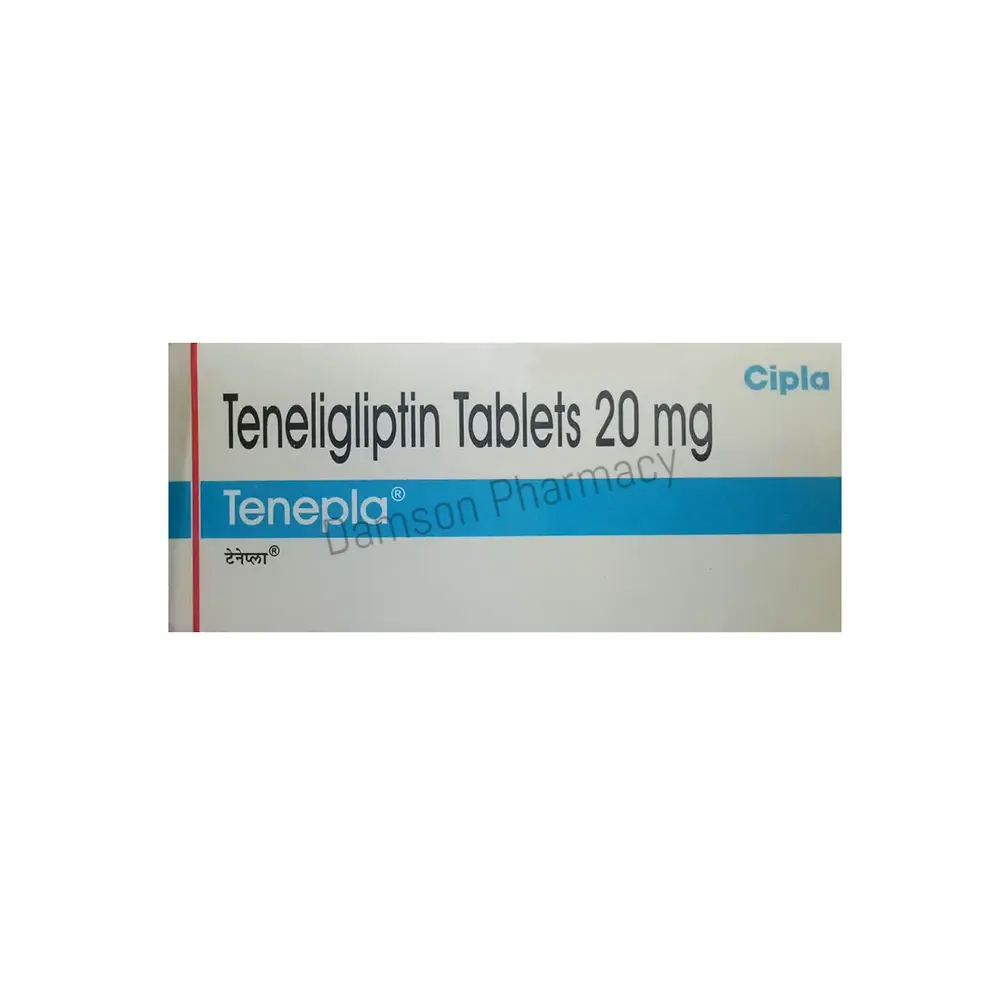
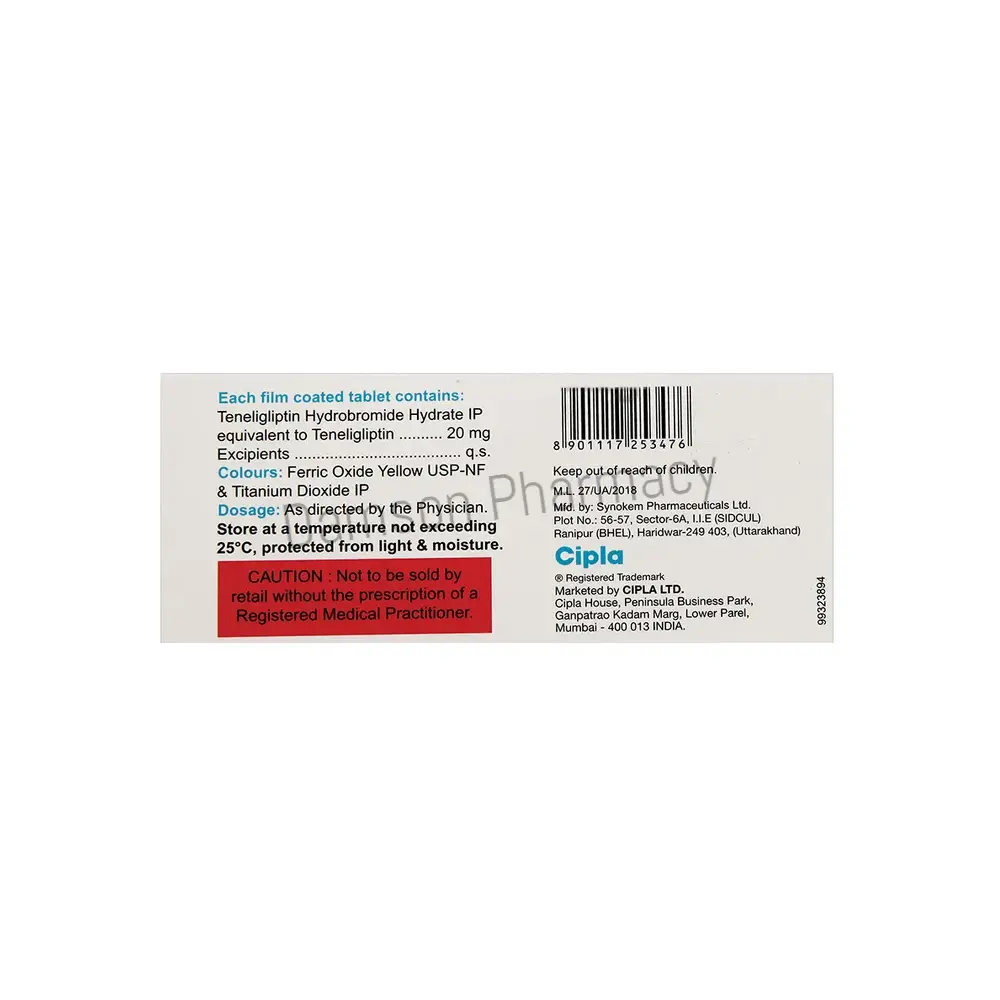
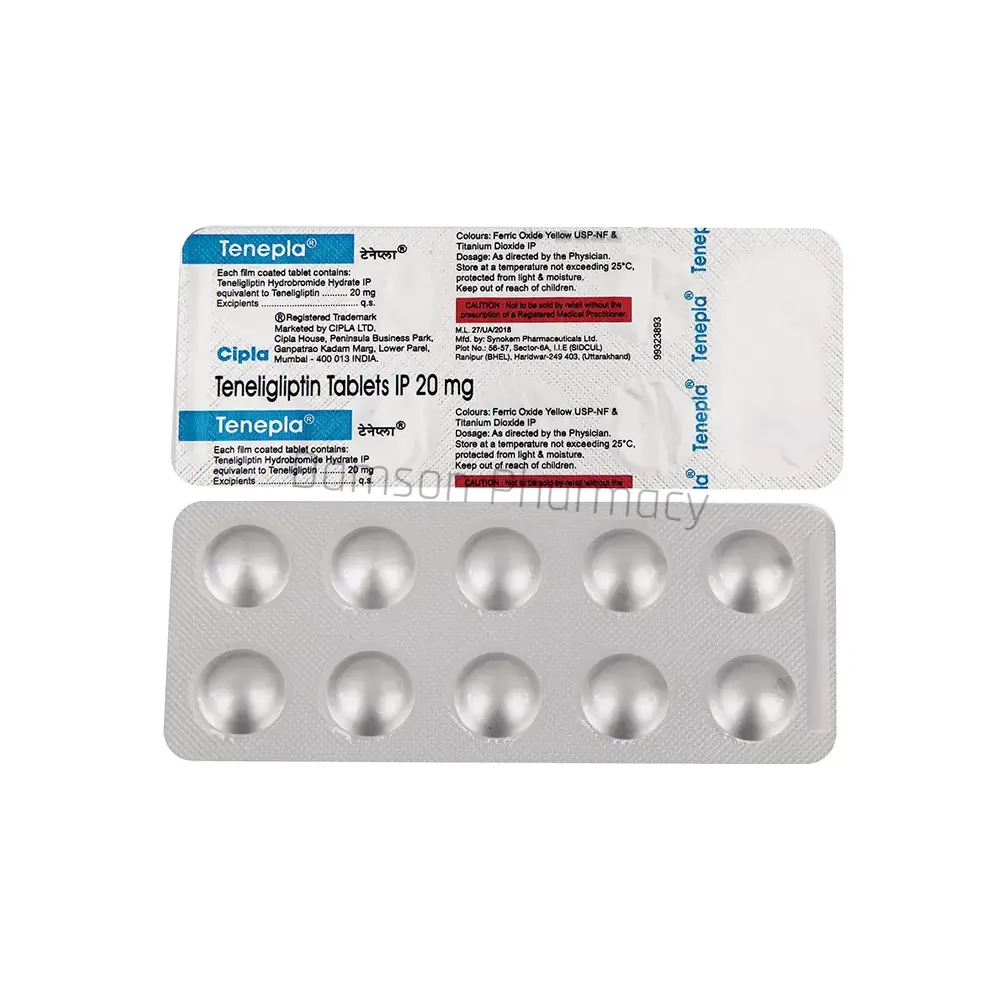
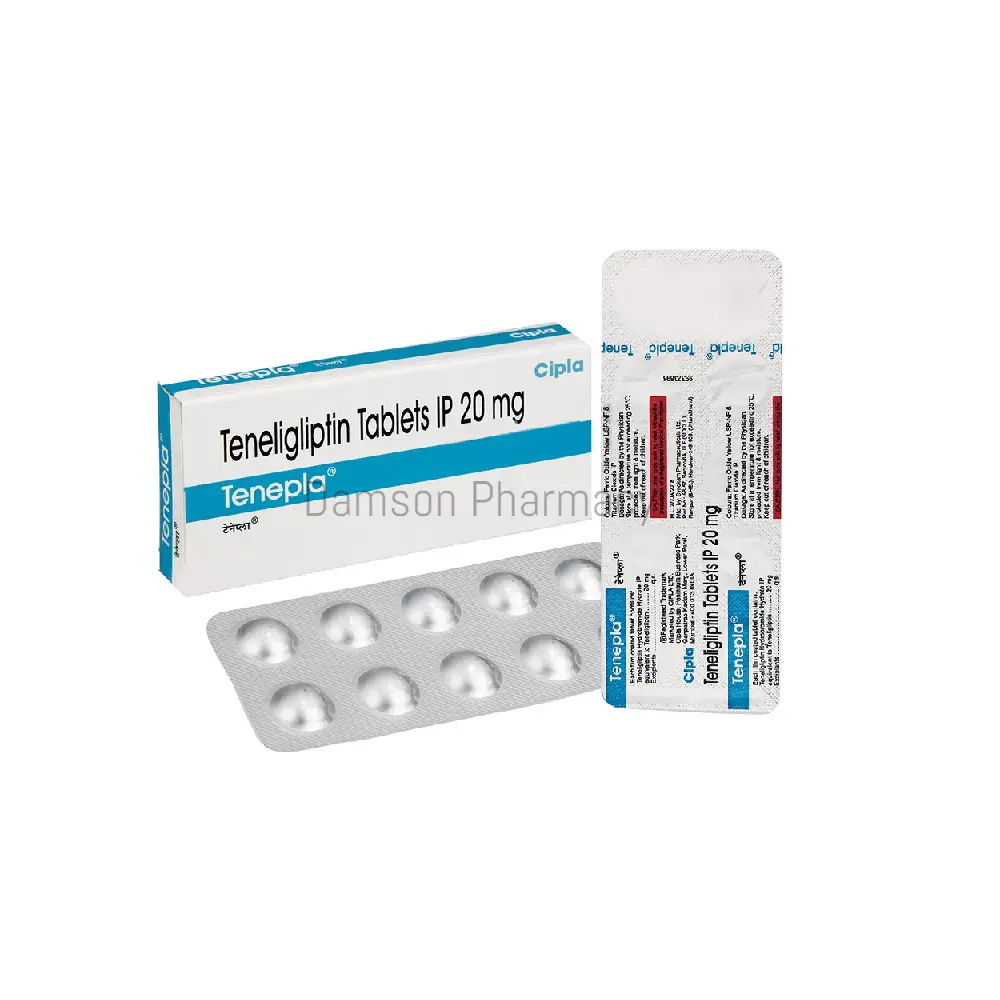
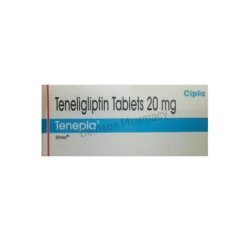
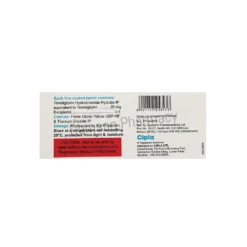
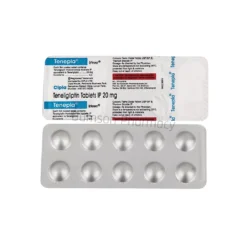
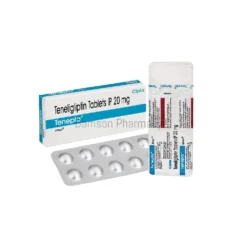
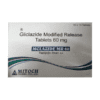
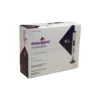
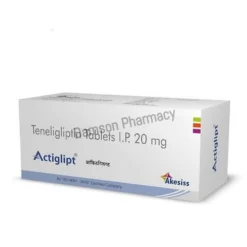
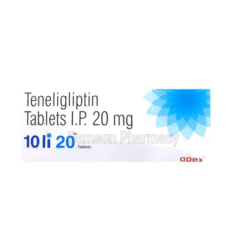
Reviews
There are no reviews yet.